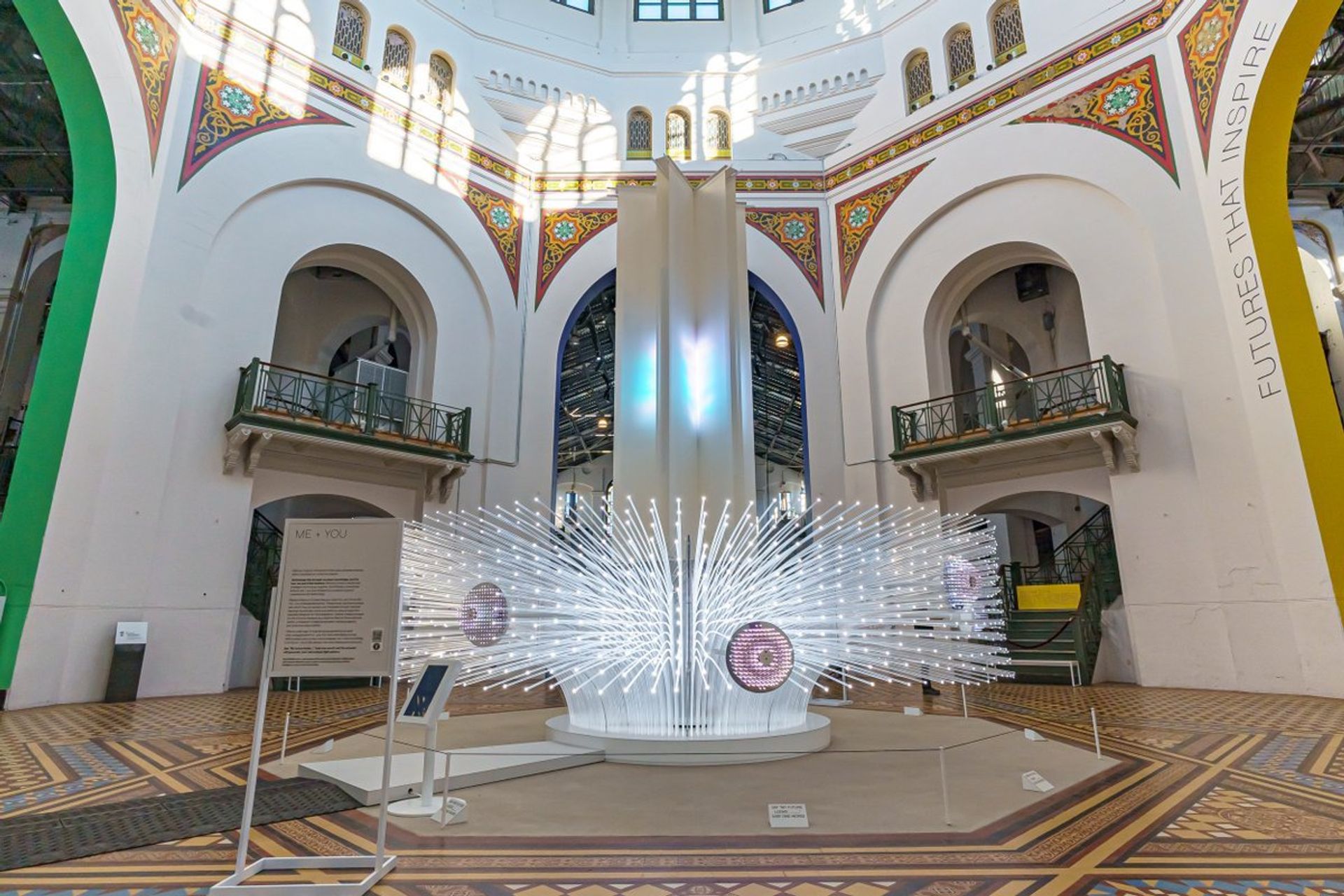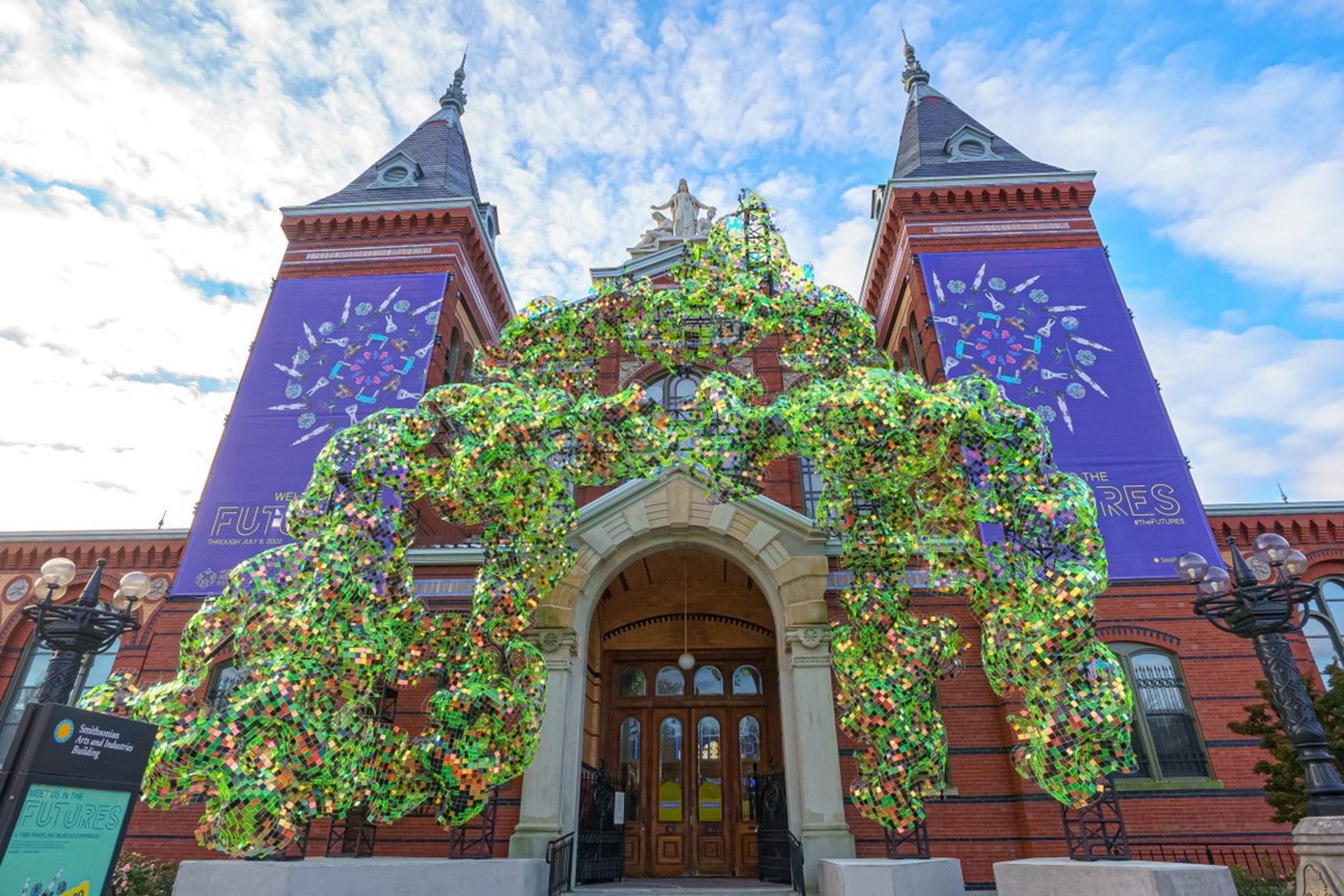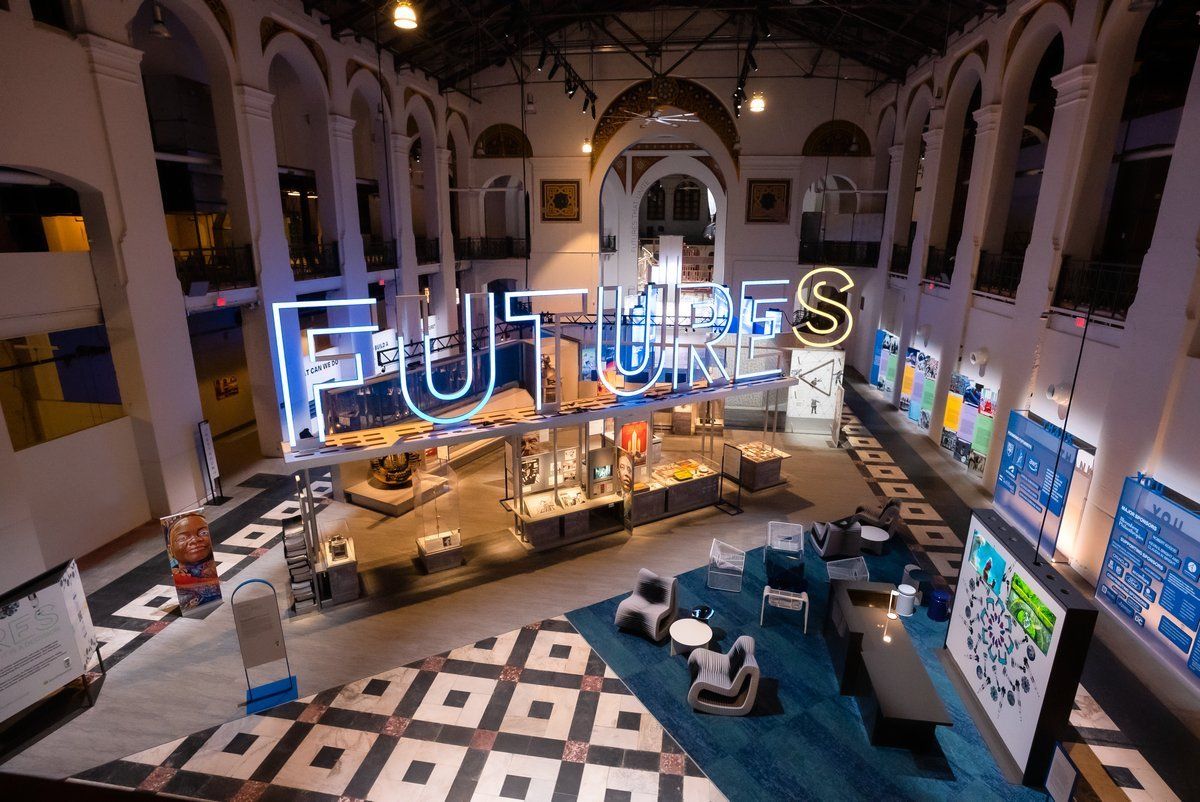A flying car, a robot to battle loneliness and a portal to citizens of tomorrow are enough to get your head spinning about what the future may hold. A new exhibition in Washington, DC offers that and many more dizzying visions of tomorrow dreamt up by artists, designers, engineers and authors.
Futures, on view through 6 July 2022, marks the formal reopening of the Smithsonian’s picturesque Arts and Industries Building (AIB). Part hangar, part Victorian mansion, the building had been largely shuttered since 2004 after falling into disrepair despite sitting on prime real estate on the National Mall.
A huge fountain of lights stands in the AIB’s central, 108ft rotunda bedecked with Moorish stenciling, where Thomas Edison once premiered his lightbulb. Visitors are invited to share their dreams at the base of Indian-born Suchi Reddy’s me + you (2021), which spews patterns in soothing shades of blue and green when hearing positive thoughts or red in reaction to swear words. The work, Amazon Web Services’ first major art commission, evolves using artificial intelligence and depending on the thoughts shared in person or online using an app. In an era dominated by Big Tech, the project was designed to avoid collecting personal identifying data.

Installation view of Futures featuring Suchi Reddy’s me + you (2021) Photo by Albert Ting, courtesy the Smithsonian Institution
The AIB setting is especially apt for a show largely concerned with how our shared future can be both better, faster and stronger, but also reduce the devastating impact of human waste and pollution on the planet. It’s the 19th century’s equivalent of LEED-certified architecture, with natural light filtering through hundreds of skylights and clerestory windows in a Greek cross-shaped 1881 structure capped by an iron truss roof and built with largely local materials, including marble embedded with ancient marine fossils.
Beyond the awe-inspiring creations that dot this temple of innovation, a collection of real-life solutions may be cause for some more humble genuflecting. They come in the form of water sourced from the air (via a Water Harvesting prototype) to combat the global water crisis, cell-cultured food and insect appetisers. Sexy? Perhaps not, but they’re the types of innovations that could become ubiquitous in the coming years.
“We have a very tempered but hopeful optimism in our approach in this show and beyond,” says AIB curator Ashley Molese. “We are optimistic in spite of circumstance, in spite of our time and in spite of the many challenges that feel almost insurmountable. This is very much a living, breathing show that really seeks to demonstrate that kind of resiliency.”

Installation view of Futures featuring Soo Sunny Park’s Expanded Present outside the Smithsonian’s Arts and Industries Building Photo by Albert Ting, courtesy the Smithsonian Institution
Australian artist Tega Brain devised a washing machine that uses water filtered through wetlands, a nod to the nearby Chesapeake Bay, one of the largest estuaries in the US. In preparing for the installation, artist and staff learned that local native plants would not survive in the controlled indoor environment because they are very light-sensitive and go dormant. So the tank is filled instead with subtropical grasses, the kind that may ultimately populate the area due to global warming.
Alexandra Genis tackled the problem of food shortages by reproducing flavors found in a strawberry plant. Using a 3D printer, she created replicas of specific flavor molecules that can be grated over food like parmesan over pasta. The candy-coloured shapes made from cocoa butter look like an abstracted Venus of Willendorf, with extra protrusions. Projects like these ask critical questions about how each individual fits in an uncertain future and can make a difference in ensuring humanity’s endurance.
- Futures, Arts and Industries Building, Washington, DC, until 6 July 2022.


